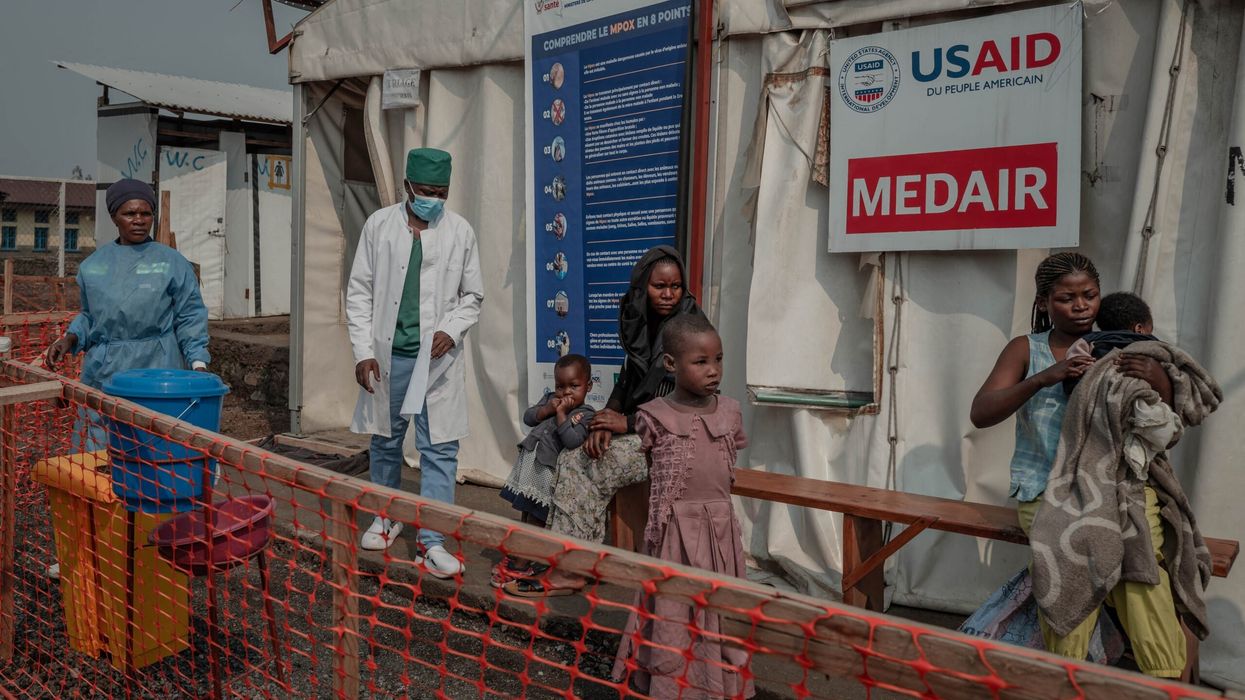A NEW mpox outbreak in Africa has been declared an emergency by the World Health Organisation (WHO). On Friday, the European Centre for Disease Prevention and Control (ECDC), an EU agency, announced that more imported cases to Europe are "highly likely."
The Africa Centres for Disease Control and Prevention (Africa CDC) has issued its first-ever Public Health Emergency of Continental Security (PHECS) for the disease, marking a significant escalation. This is the second time the WHO has issued a public health emergency warning for mpox since the epidemic began spreading globally in 2022.
The virus, which originated in the Democratic Republic of Congo (DRC), has now spread to other African nations and was detected this week for the first time in Sweden and Pakistan.
What is mpox?
Mpox, formerly known as monkeypox, was first identified in humans in the DRC in 1970. There are two subtypes of the virus: clade 1 and clade 2. Clade 1, the deadlier subtype, has been endemic in the Congo Basin in central Africa for decades, while clade 2 is less severe and endemic in parts of West Africa.
The virus spreads through human-to-human contact, particularly through sexual or close physical contact. Symptoms include fever, muscle aches, and large boil-like skin lesions. Mpox gained international attention in May 2022 when clade 2b, a less deadly strain, spread globally, mainly affecting gay and bisexual men. According to WHO, from January 2022 to June 2024, there were 208 deaths and over 99,000 mpox cases recorded across 116 countries.
What is new?
The recent surge involves the deadlier clade 1 and a new mutated variant called clade 1b, first detected among sex workers in the DRC in September 2023. Sweden has reported the first case of this variant outside Africa, prompting the EU's health body to urge countries to increase preparedness. Pakistan has also reported its first case, marking Asia's first known case of this strain.
Brian Ferguson, an Associate Professor of Immunology at the University of Cambridge, stated, "It is not surprising... that travel between continents has brought this case to Europe." He added that cases are likely to increase in Europe and elsewhere due to the lack of mechanisms to stop imported cases of mpox.
Francois Balloux of the University College of London Genetics Institute emphasised the need for "rapid international co-operation" to contain the epidemic, noting there is "no evidence of transmission in Europe at this stage."
Who is affected?
Clade 1 mpox is known for causing more severe illness in young children, pregnant women, and immunocompromised individuals, according to Jonas Albarnaz, a specialist in pox viruses at the Pirbright Institute in Britain. Clade 1b, primarily spread through sexual transmission, mostly affects young adults but has also been observed spreading through non-sexual contact, such as children playing together at school. The WHO reports that clade 1b has a mortality rate of around 3.6 percent, with infants and children being at higher risk.
Which areas are affected?
The WHO reports that more mpox cases were recorded in the first half of this year than in all of 2023. The majority of these cases have been in the DRC, where 548 people have died this year, according to the government. Recent outbreaks have also been reported in Burundi, Kenya, Rwanda, and Uganda, although none have resulted in deaths, as per the WHO. Nigeria has reported 39 cases of a milder strain of mpox this year.
This week, Sweden and Pakistan reported their first cases of mpox outside Africa, with the WHO warning that more cases of the new strain are likely in Europe.
Is there a vaccine?
During the global spread of mpox in 2022, vaccines were deployed in Europe and North America, which helped control the outbreak. However, vaccines have not been widely available in the African countries most affected by mpox.
On Wednesday, the US Department of Health announced it would donate 50,000 doses of an mpox vaccine to the DRC. Additionally, Africa CDC head Jean Kaseya announced on Tuesday an agreement with the European Union and Danish drugmaker Bavarian Nordic to distribute 200,000 doses across the continent. Kaseya noted that although this would not be enough, Africa could potentially secure an additional 10 million vaccines. On Friday, Bavarian Nordic stated it is seeking European approval to use its mpox vaccine in children aged 12 to 17.
(With inputs from AFP)




